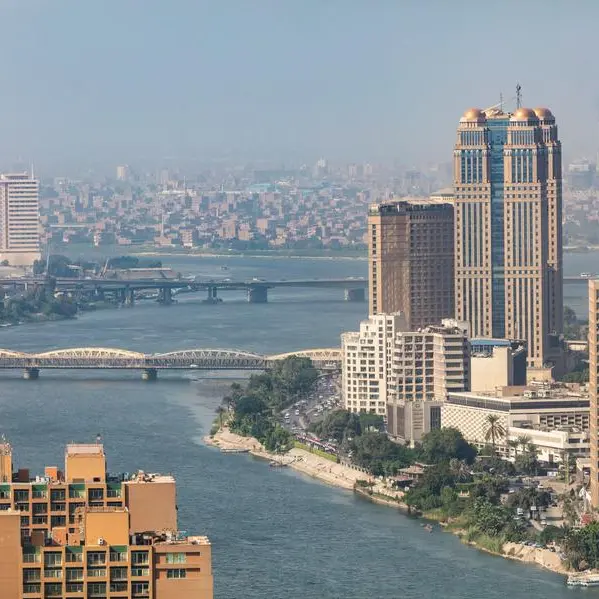PHOTO
Saudi Arabia - King Abdulaziz City for Science and Technology (KACST) is working with Aramco and Saudi Data & AI Authority (SDAIA) on establishing a Quantum Valley by leveraging strategic partnerships with major quantum companies such as IBM and Pasqal to operate the first quantum computer in the Kingdom.
Dr Talal bin Ahmad Al-Sudairy, Senior Vice President of KACST for Research and Development, revealed this during the World Quantum Day 2025" events, organised by the Centre for the Fourth Industrial Revolution Saudi Arabia, in partnership with KACST.
President of KACST and Chairman of the Centre’s Board of Directors, Dr Munir bin Mahmoud El-Desouki, along with a distinguished group of experts and enthusiasts in future technologies from within and outside the Kingdom took part in the event.
Dr Al-Sudairy said: “In the Kingdom, the future is not a distant dream — it is being translated in the quantum labs at KACST, discussed in the innovation centres in NEOM, and tested in the startup garage. We are working on building an ecosystem that brings together academia, industry, and innovation.”
Dr Basma Al-Buhairan, Managing Director of the Centre for the Fourth Industrial Revolution Saudi Arabia, stated in her opening speech that “quantum science is no longer confined to theoretical frameworks; today, it has become a main driver for developing practical solutions that meet societal needs and help address global challenges”.
Dr Al-Buhairan explained that the “UpLink” challenge embodies an effective model of integration between tech innovators and decision-makers, supporting the building of a more advanced and sustainable future.
Startups honoured
The event witnessed the honouring of the top 10 innovative startups from various countries in the “Quantum for Society” challenge, launched by the Centre in collaboration with the World Economic Forum’s “UpLink” platform. The aim was to support startups and entrepreneurs using quantum technologies to offer practical solutions to global challenges in fields such as climate change, sustainability, healthcare, and water.
Among the winning startups was the German firm Planqc, which developed quantum computers to improve supply chains, discover materials, and accelerate drug development. A UK startup, Quantum Dice, developed advanced quantum algorithms to enhance energy efficiency in computational processes, while the Brazilian company Qnity introduced a high-precision solution for detecting molecular interactions, accelerating new drug discovery.
In the environmental field, the Spanish startup, PlanetaiSpace, launched the “QUANTUM-AQUA” initiative, which uses satellite technologies and quantum machine learning to detect groundwater depletion early.
In the health sector, the UK startup, Quantasphere developed advanced quantum solutions to enhance data security in healthcare, while the Finnish company Algorithmiq offered a software platform that links quantum and classical systems for drug discovery and patient-specific treatment customization.
The US startup, Xairos, developed quantum time-transfer technology that provides ultra-accurate global timing for telecommunications networks, data centers, and financial institutions.
In the energy and geology sectors, the Australian startup, Nomad Atomics, introduced a technology enabling precise imaging of subsurface dynamics using gravity, enabling effective applications for carbon dioxide storage. The Canadian startup, Quminex, developed solutions based on quantum intelligence and unsupervised learning to efficiently detect critical mineral deposits, while the Spanish company Quantum Mads developed technologies to enhance the efficiency of wastewater treatment plants using quantum computing, reducing energy consumption and improving environmental resource management.
World Quantum Day activities also featured a series of panel sessions that discussed the applications of quantum in vital areas such as healthcare, cybersecurity, computer science, education, and communications. These included discussions on the importance of governance and investment strategies for the next phase of the quantum transformation, in addition to workshops hosted by the Saudi Society for Quantum Computing, which presented advanced concepts in quantum computing—most notably the concept of “entanglement swapping” and its expanding applications. The event also included a tech exhibition showcasing the history and future evolution of quantum sciences.
The organisation of this event comes as part of the Kingdom’s efforts to strengthen its position in the field of future technologies and to support the "quantum economy" project. April 14 was selected as an annual occasion to celebrate quantum science, in line with the United Nations’ declaration of 2025 as the International Year of Quantum Science and Technology. - TradeArabia News Service
Copyright 2024 Al Hilal Publishing and Marketing Group Provided by SyndiGate Media Inc. (Syndigate.info).





















